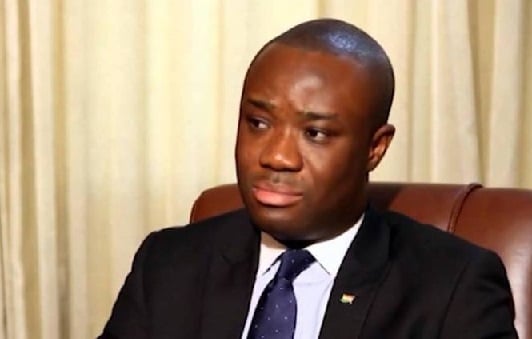Felix Kwakye Ofosu, a prominent spokesperson for Ghana’s opposition National Democratic Congress (NDC), has vehemently criticized the ruling New Patriotic Party (NPP) for their failure to effectively address the escalating crisis of illegal mining, commonly referred to as “galamsey.” In a social media post on October 4, Kwakye Ofosu expressed his frustration at the NPP administration, suggesting that their inaction amounted to a grotesque neglect of their responsibilities to the environment and the wellbeing of the citizens. He highlighted the alarming situation where the government would prioritize electoral considerations over urgent environmental protections, labeling this approach as madness. This critique arose in light of comments made by President Nana Addo Dankwa Akufo-Addo, who indicated that the government needed more time to consider calls for a complete ban on small-scale mining.
The President’s comments were made during a meeting with Organized Labour, where he addressed the ongoing calls for stringent measures to combat illegal mining. His suggestion to delay impactful action until after elections has been met with significant backlash. Many believe that the environmental devastation wrought by galamsey operations is a pressing crisis that should not be deferred for political expediency. The growing frustration among opposition members and civil society underscores a widespread sentiment that environmental health should take precedence over electoral timelines, especially given the severe impact of galamsey on Ghana’s natural resources.
Galamsey has been a persistent issue in Ghana, contributing to significant environmental degradation, particularly affecting water bodies and forest reserves. The pollution of vital rivers, such as the Pra and Ankobra, has had devastating consequences for local communities, leaving them without access to clean water and ruining agricultural lands across various regions. This crisis has prompted calls for immediate and effective governmental intervention to safeguard the country’s environment. Stakeholders, including environmental advocacy groups and local communities, have been intensifying their demands for action, arguing that the current situation necessitates urgent solutions rather than delays.
The criticisms from Kwakye Ofosu and others emphasize the urgent need for the government to take a firm stance against illegal mining activities. Proponents of a blanket ban on small-scale mining argue that without decisive action, the negative impacts on water quality, food security, and biodiversity will continue to escalate. The sentiments expressed by Organized Labour serve as a clarion call for more robust regulatory measures, including the declaration of a state of emergency to address the galamsey menace effectively. This push for action aligns with broader environmental goals aimed at preserving Ghana’s ecology and ensuring the sustainability of its natural resources.
In addition to environmental concerns, the socio-economic implications of illegal mining cannot be overlooked. Many families and communities suffer from adverse effects due to contaminated water sources and the degradation of arable land. The resultant loss of livelihoods has exacerbated poverty levels, further complicating an already dire situation for many Ghanaians. Addressing these interconnected challenges has become imperative for both the government and civil society, as the repercussions of inaction extend far beyond environmental degradation and threaten the well-being of entire communities.
As the debate surrounding galamsey wages on, the NPP administration is faced with increasing pressure to prioritize environmental stewardship and decisive action over political considerations. The ongoing discourse reflects a wider societal realization that the health of the environment is intrinsically linked to the prosperity of the nation. With illegal mining activities posing continuous threats to ecosystems and human health, it is critical for the government to reassess its priorities and implement effective measures to counteract this pressing crisis, ensuring a sustainable future for Ghanaians.


